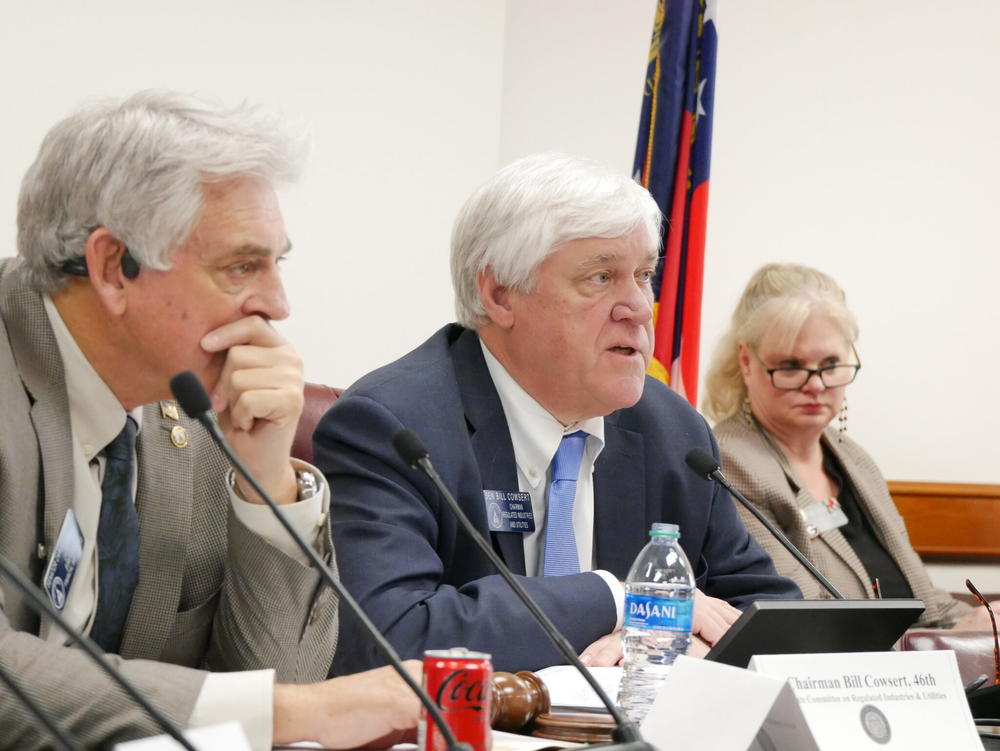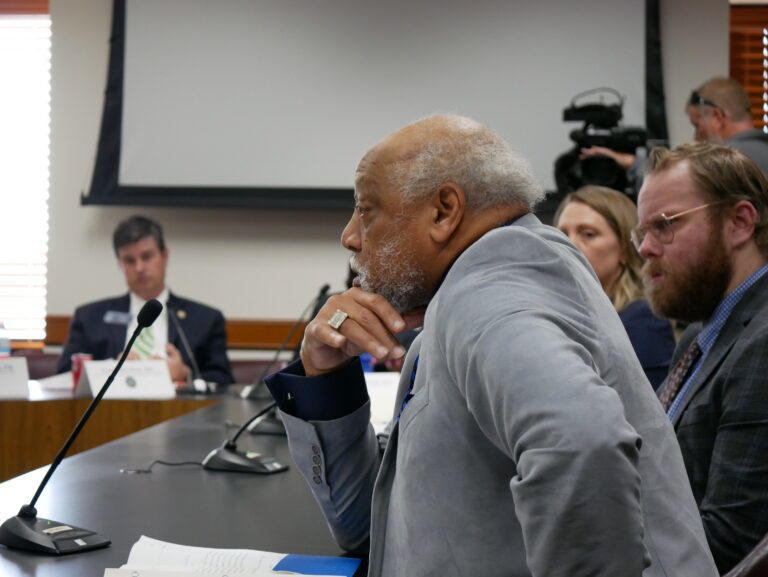
Caption
Sen. Bill Cowsert (center) cast the decisive vote Thursday to keep a Medicaid expansion proposal from advancing out of his committee. Cordele Republican Sen. Carden Summers (left) was one of two Republican senators who voted for the bill.
Credit: Jill Nolin/Georgia Recorder


